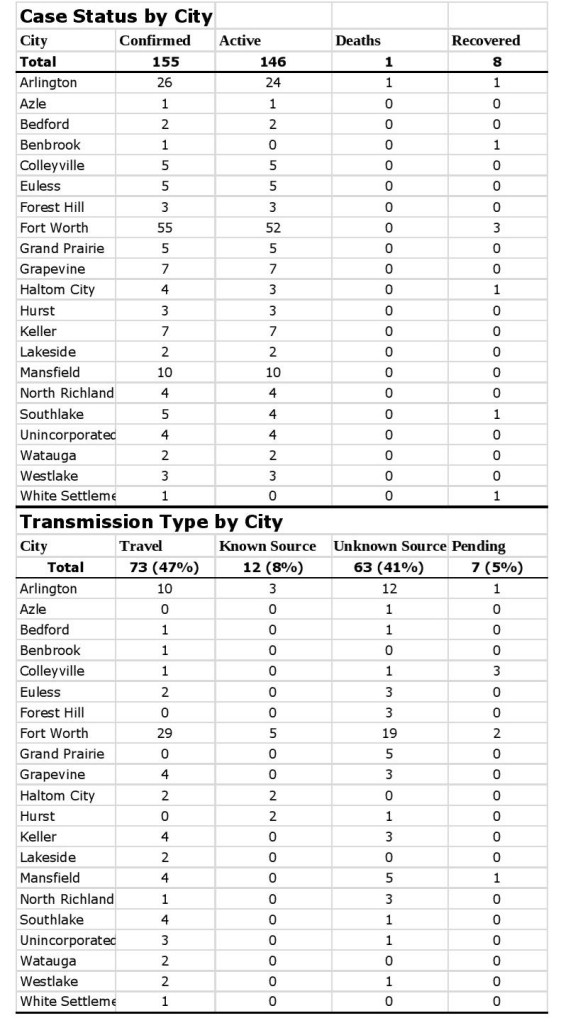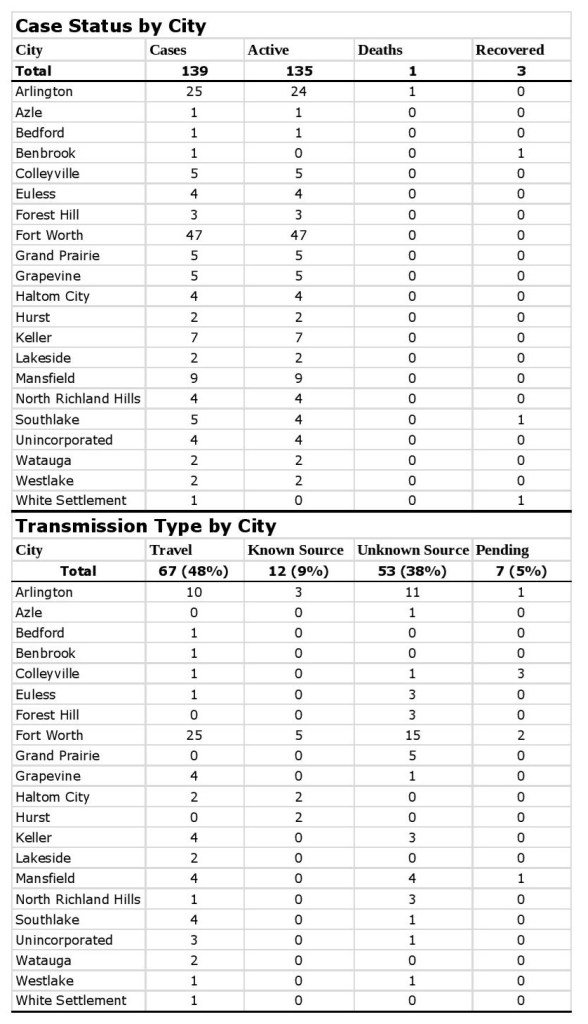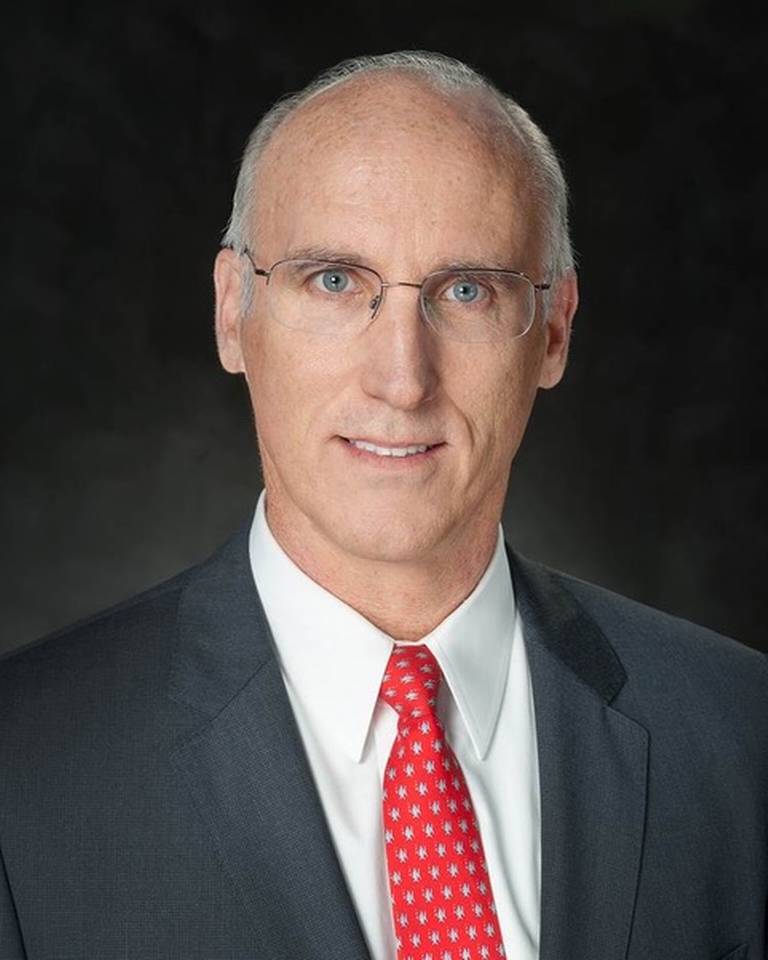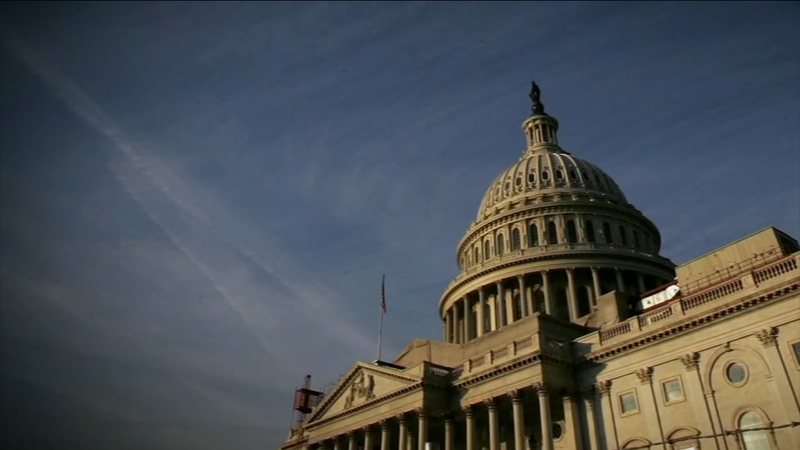Tarrant County Public Health hosts numerous pop-up COVID-19 clinics across Tarrant County each week in partnership with public and private organizations listed below. Each site has the Moderna and Pfizer vaccines and at times the Johnson & Johnson. Children five and older are eligible for the vaccination. Parents need to bring proof of the child’s age and their own ID for the vaccination. Booster vaccinations are available at all of the vaccination locations.
TCPH would like to bring a COVID-19 vaccination clinic to businesses, churches and organizations in the community who are interested in hosting a pop-up clinic. It’s easy and free to host a clinic.
In addition to the vaccination opportunities below, the cities of Arlington, Fort Worth, Mansfield, North Richland Hills, Hurst, and Tarrant County College have also added opportunities for vaccinations. To find a local vaccine site, the County created a vaccine finder page: VaxUpTC website.
Pop-Up COVID-19 locations:
Coral Rehabilitation of Arlington
Monday, Oct.10: 12 p.m. to 4 p.m.
1112 Gibbins Road
Arlington, TX 76011
Cityview Nursing and Rehabilitation
Wednesday, Oct.12: 9 a.m. to 1 p.m.
5801 Bryant Irvin Rd.
Benbrook, TX 76132
Grace Metroplex
Wednesday, Oct. 12: 10 a.m. to 1 p.m.
1310 South Collard St.
Fort Worth, TX 76105
Haltom City Public Library
Friday, Oct. 14: 11 a.m. to 3 p.m.
4809 Haltom Road
Haltom City, TX 76117
City of Arlington
Friday, Oct. 14: 10 a.m. to 4 p.m.
2800 S Center St.
Arlington, TX 76014
Tarrant County Public Health CIinics:
Northwest Public Health Center
Monday to Friday: 8 a.m. to 12 p.m. and 1 to 5 p.m.
3800 Adam Grubb Road
Lake Worth, TX 76135
Bagsby-Williams Health Center
Monday to Friday: 8 a.m. to 12 p.m. and 1 to 5 p.m.
3212 Miller Ave.
Fort Worth, TX 76119
Southeast Public Health Center
Monday to Friday: 9 a.m. to 12 p.m. and 1 to 6 p.m.
536 W Randol Mill
Arlington TX, 76011
Main Public Health Center
Monday to Friday: 8 a.m. to 12 p.m. and 1 to 6 p.m.
1101 S. Main Street
Fort Worth, TX 76104
Southwest Public Health Center
Monday to Friday: 8 a.m. to 12 p.m. and 1 to 5 p.m.
6551 Granbury Road
Fort Worth, TX 76133
Watauga Public Health Center
Monday to Friday: 8 a.m. to 12 p.m. and 1 to 5 p.m.
6601 Watauga Road
Watauga, TX 76148
For more information go to coronavirus.tarrantcounty.com or call the Tarrant County Public Health information line, 817-248-6299, Monday – Friday 8 a.m. to 6 p.m.





